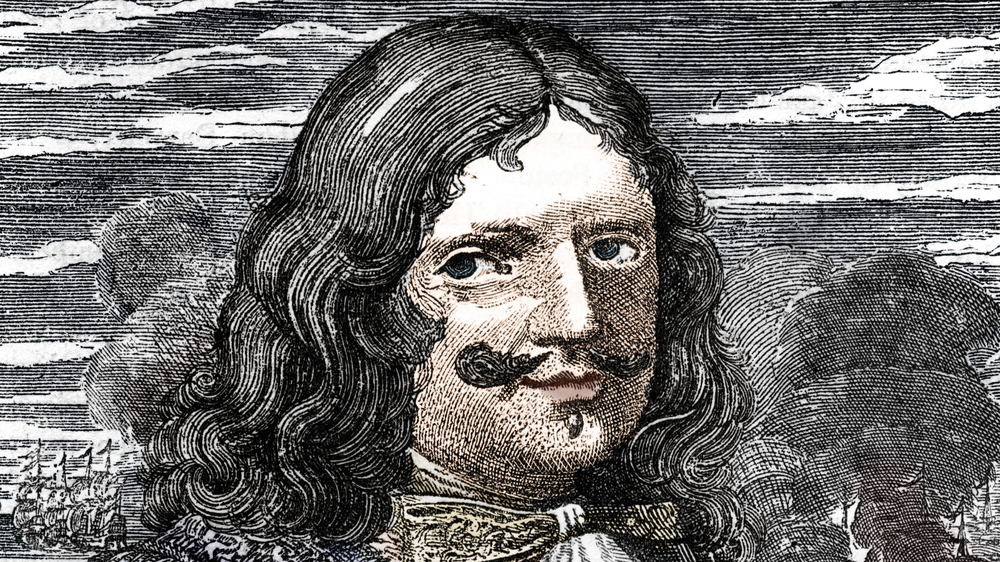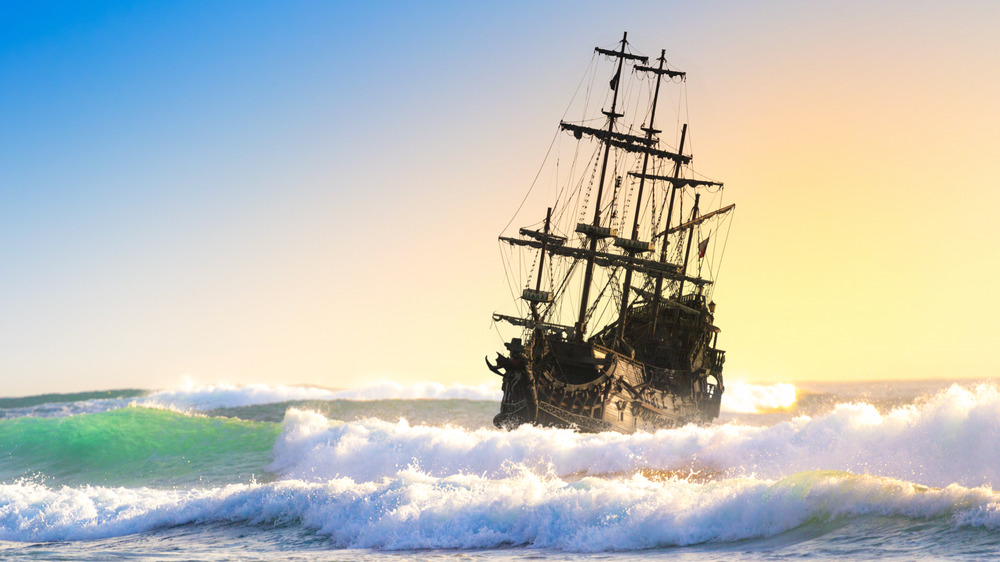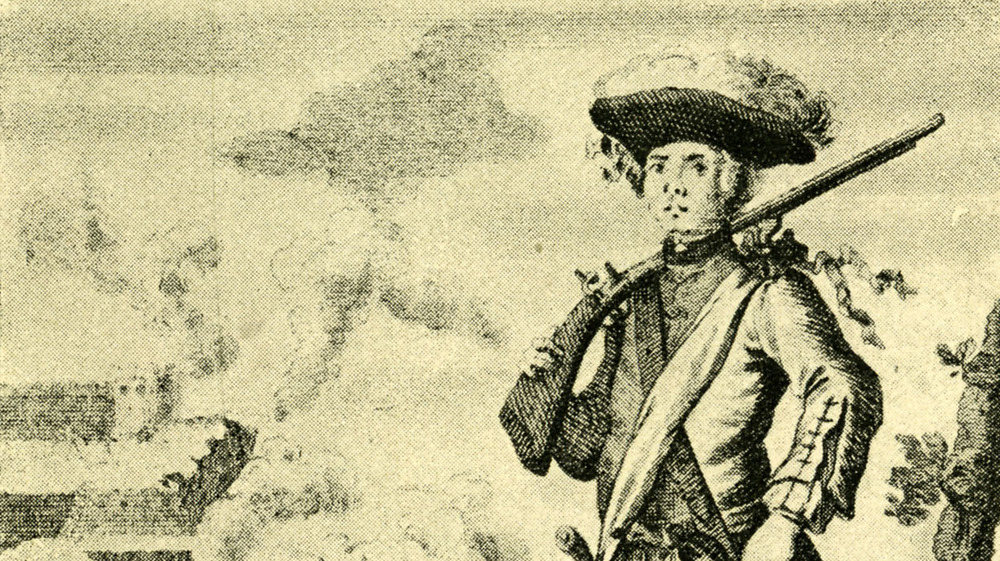Was The Real Captain Morgan Actually A Pirate?
The name Captain Morgan evokes nights at the bar and mixed cocktails. But Captain Morgan is more than just a brand of rum; there was a real Captain Morgan.
Henry Morgan was a British subject who did sail the seven seas and was the scourge of many ships. Though no one knows of his life before going to the sea, there's a lot of written records of his exploits in the Caribbean, particularly in Jamaica. After all, not many notorious seafarers get appointed as a government official and knighted by the king of England.
Morgan was born around 1635, per Britannica, in Llanrhymney in what's now Cardiff in Wales.
It's unclear why Morgan went from Wales to the Caribbean. Historic UK pointed out several popular theories. One possibility was that a young Morgan had been "barbadosed" or kidnapped to work as a laborer in Barbados. Morgan's doctor in Panama spread these rumors with the publishing of a book talking about Morgan's exploits. Talk about a breach of doctor-patient confidentiality. Morgan wasn't happy with this and sued his former doctor.
The most accepted version is that Morgan joined the English navy by choice and was sent to the Caribbean to fight off the Spanish. Either way, he arrived in Barbados in 1655. As a junior officer, Morgan was involved in an unsuccessful attack on Santo Domingo. Eventually, he and the navy fought the Spanish for control of Jamaica and won.
Jamaica was where Morgan was more active.
He attacked ships on England's behalf
One of Morgan's uncles, Edward, was appointed governor of Jamaica. He was close to his uncle because Morgan married his uncle's daughter, Mary Elizabeth, in 1665. Having a prominent relative in power is probably why Morgan could get command of a ship as a privateer.
Wait, what's a privateer, you ask? Privateers were essentially legal pirates, backed by a state to roam the seas and attack other ships. Usually, privateers only attacked the ships of enemies of their sponsors. In Morgan's case, he commanded a ship and only harassed Spanish ships and left English ones alone. This is a time when England was at war with Spain. Also, England wanted to control more of the world. Privateers, though, were more like independent contractors. They didn't receive a salary because they're technically not members of the English navy. So privateers were allowed to keep any booty they found on their raids.
Privateering made Morgan very rich, and he bought several sugar plantations in Jamaica the same year he married Mary Elizabeth. With his ships, Morgan led attacks on Puerto Principe in Cuba and raids on Puerto Bello in Panama, wrote HistoryNet. Reports then said Morgan and his men were disappointed that the treasure in these cities were small.
Later, in 1671, Morgan undertook another attack on Panama City. With 300 men, Morgan charged the larger Spanish army, who weren't well-trained. His men took the city, plundered it, and even tortured some city residents. Panama City burned for months.
Captain Morgan was knighted by King Charles II
Morgan may have been classified as a privateer, but the English and Spanish governments signed a peace treaty. Word about the treaty did not reach the notorious captain before he plundered and raided Panama.
So the English authorities branded Morgan a pirate and ordered his arrest. Even though the governor of Jamaica (who was no longer his Uncle) refused to arrest his island's favorite seafarer, Morgan eventually landed in London. He was jailed and charged for piracy.
But, by 1674, England was at war again, this time with the Netherlands. Without Morgan, privateers in Jamaica didn't want to engage the Dutch, so King Charles II knighted Morgan to enlist his help. Morgan returned to Jamaica as its deputy governor.
He spent the rest of his life in Jamaica, running his sugar plantations and participating in politics. He didn't engage in any more piracy, though he may have funded other privateers. Morgan likely died of alcoholism in 1688.
So, was Morgan a pirate? Not really. He was a privateer, and he died before governments disavowed privateers. While some privateers turned to piracy in peacetime, there's no evidence Morgan did the same, mostly since England was always at war when he was active. Yes, he was arrested for piracy, but he believed the authorities sanctioned his actions.
What's for sure is that Morgan got famous enough for a rum brand — fitting for someone like him.


